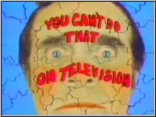I think I’m a pretty traditional person in the sense of my parenting. I believe in strict bedtimes, hug them whenever I can, and sometimes feed them fast food. I also believe in, and encourage, hard work; nothing is guaranteed in life and there is no substitute for hard work. In our house, we value education and experiences, but occasionally have mismatched socks and forget to brush the back of our hair (looking at you, 6-year-old girl). It’s a delicate balance, this game of parenting.
Where I think I probably diverge a little is my reaction to what comes out of my kids’ mouths. First of all, I have an incredibly weak laugh reflex to little kids swearing. Lord forgive me, but when my daughter said “dammit boys!” at her daycare at the age of 3, I snickered uncontrollably and had to compose myself before we talked about appropriate language. #momfail
What I do NOT laugh at, however, is when the words that come out of them are disrespectful to another human being or perpetuate any kind of hate. In fact, “hate” is a bad word in our house, as are “stupid” and “shut up” (those are the real S-Words to me).
I honestly don’t care if one of them drops something on their toe and says “shit.” Of course I don’t let them know it’s OK, and I admonish the language and tell them it’s a “bad word,” but 1) I’m usually trying to stifle laughter and 2) they usually nailed the usage. Who doesn’t say that word when they stub their toe or smash their finger?
Name-calling, disrespect, and any kind of hatred or intolerance of any kind are NOT welcome, however. No, you don’t HATE carrots, you dislike them. No, you don’t HATE going to the dentist, you strongly dislike it (P.S. Wait until you’re older and stuff starts malfunctioning and falling apart and aching for no reason. Dentist trips with your baby teeth = a walk in the park).
The goal is to eliminate hateful words from their language at a young age, even when referring to something as silly as carrots, because I don’t want these ugly words to come easy to them as they get older.
 I was raised similarly I think. I remember not being allowed to watch Nickelodeon’s You Can’t Do That on Television because the characters were routinely obnoxious and rude and disrespectful to each other. And, as they usually say one will utter later in life, my parents were right! (Yes, Mom & Dad… it is now in print for the world to see: You were right.) That show was a No-Go in the House of Smith, and I really don’t feel like I missed out on anything. Fun fact: I have literally met ONE other person whose parents also did not allow this show. He is married to a great college friend of mine, and he is a solid dude.
I was raised similarly I think. I remember not being allowed to watch Nickelodeon’s You Can’t Do That on Television because the characters were routinely obnoxious and rude and disrespectful to each other. And, as they usually say one will utter later in life, my parents were right! (Yes, Mom & Dad… it is now in print for the world to see: You were right.) That show was a No-Go in the House of Smith, and I really don’t feel like I missed out on anything. Fun fact: I have literally met ONE other person whose parents also did not allow this show. He is married to a great college friend of mine, and he is a solid dude.
I can’t help but wonder: What are we teaching our kids when we tell them a gross word for “poop” is on par with or worse than saying “I hate that person?”

Hmmmmm… ???
Please don’t interpret this as my house being a pirate ship full of drunken sailors (I definitely do not encourage or condone swearing), but rather as a step back to look at the meanings of the words we use.
We sometimes talk about the meaning of “hate” and “intolerance” in our house, and that conversation came up again recently during a movie night. We chose the modern-day version of Horton Hears a Who, and amidst the fast-paced humor and fun characters there are lessons buried about humanity, love for one another (no matter who you are), and maybe even some hints of faith and bullying. In light of recent world events, the movie really struck a chord and my mind started churning, so I  decided to do a little research on the movie.
decided to do a little research on the movie.
Turns out, Dr. Seuss actually wrote Horton after a realization and complete turnaround he had about his own beliefs. Dr. Seuss had a history of putting out some pretty racist and inappropriate stuff back in the day, but after the US bombed Japan during WWII (and he had published a pretty nasty cartoon about the Japanese), he took a visit to the country as part of some research he was doing and talked to school children there. These interactions and experiences lead to a pretty drastic change of heart regarding his intolerant views of others. This is actually when he came up with Horton’s most profound line,
“A person’s a person, no matter how small.”
I have always loved the movie, but now I love it even more because of the valuable lessons and teachable moments it provided for my kids. [You can read more fun facts about Horton Hears a Who here from Mental Floss.]
My thoughts and beliefs on parenting are not going to be everyone’s cup of tea. I’m sure that somewhere while reading this, pearls were clutched over the fact that I don’t immediately shove a bar of soap in my kids’ mouths for uttering a curse word, but I’m more focused on the meaning behind the words and making sure they understand how those words can be damaging. Why aren’t they as kids allowed to say the “Bad Words of Society?” Well, because those words are gross and/or rude and inappropriate, and they are reserved for adults in special situations (i.e. I burned the Mac & Cheese. Again.) Why aren’t we as a family allowed to say “I hate _____” (or “Stupid” or “Shut-up”)? Because they are devaluing to another person and perpetuate intolerance. We don’t have to sit around hugging everyone, but we do have to listen to opinions, have conversations, and learn to appreciate what every person on this planet has to offer.
Smash your finger/toes and say “shit”? Can’t blame ya.
Decide you “hate” someone? No.


Jamie Falls
Wise words. If more people taught respect and tolerance of differences the world would undoubtedly be a kinder place.
LikeLiked by 1 person
Artist Caregiver
We moms have an uphill battle. But the stakes are high, the hearts of our children! Great informative post. Dr. Seuss, my all time fave
LikeLiked by 1 person
Jennifer aka Mom
Wow. Great post. We treat ‘hate’ as a swear word too.
LikeLiked by 1 person